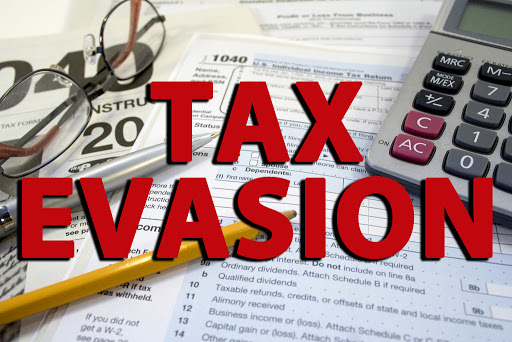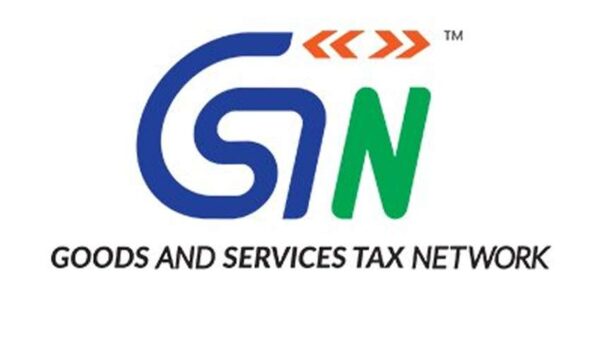- Introduction
On hearing about charitable and religious trusts at first blink it seems that activities of such entities would be out of GST net as they are not engaged in any business. However, this inference is not completely true as under GST Law all services supplied by such trusts are not exempt, rather such trusts enjoy exemption for certain services only. In fact, there are many services that are supplied by such entities which would be exigible to GST. In this regard it is important to note here that the provisions relating to taxation of activities of charitable institutions and religious trusts under GST Law have been borrowed and carried over from the erstwhile service tax provisions
2. Exempt services of charitable and religious trusts
Exemptions from levy of CGST on supply of services have been mandated vide Notification No.12/2017-Central Tax (Rate) dated 28th June 2017.Similar notification have also been issued under other GST Act(s) viz SGST Acts, IGST Act and UTGST Act. The supply of services by the trusts which have inter alia been exempted vide above Notification are discussed in the succeeding paras.
2.1 Charitable Activities of an entity registered under Section 12AA of Income Tax Act
Notification No.12/2017-Central Tax (Rate) dated 28th June 2017 exempts services provided by entity registered under Section 12AA of the Income-tax Act, 1961 by way of charitable activities from whole of GST videentry No. 1 of the notification. Accordingly “services by an entity registered under Section 12AA of Income-tax Act, 1961 by way of charitable activities” are exempt from whole of the GST.
As per above entry, exemption is given to the charitable trusts, only if the following conditions are satisfied.
(a) Entities must be registered under Section 12AA of the Income Tax Act, and
(b) Such services or activities by the entity are by way of charitable activities.
Thus, it is essential that the activities must conform to the term “charitable activities’ which has been defined inclause 2(r) of Notification No.12/2017-Central Tax (Rate) dated 28th June 2017 as under:
“charitable activities” means activities relating to:
(i) public health by way of:
(A) care or counseling of
(I) terminally ill persons or persons with severe physical or mental disability;
(II) persons afflicted with HIV or AIDS;
(III) persons addicted to a dependence-forming substance such as narcotics drugs or alcohol; or
(B) public awareness of preventive health, family planning or prevention of HIV infection;
(ii) advancement of religion, spirituality or yoga;
(iii) advancement of educational programmes or skill development relating to:
(A) abandoned, orphaned or homeless children;
(B) physically or mentally abused and traumatized persons;
(C) prisoners; or
(D) persons over the age of 65 years residing in a rural area;
(iv) preservation of environment including watershed, forests and wildlife.
From above it is evident that this notification makes the exemption to charitable trusts available for charitable activities more specific. While the income from only those activities listed above is exempt from GST, income from the activities other than those mentioned above is taxable. Thus, there could be many services provided by charitable and religious trust which are not considered as charitable activities and hence, such services come under the GST net. For example grant of sponsorship and advertising rights during conduct of events/functions etc are not towards charitable activities and thus would be subject to GST.
2.1a GST on management of educational institutions by charitable trusts
If trusts are running schools, colleges or any other educational institutions specifically for abandoned, orphans, homeless children, physically or mentally abused persons, prisoners or persons over age of 65 years or above residing in a rural area, such activities will be considered as charitable activities being covered under the definition as discussed above and income from such supplies will be wholly exempt from GST.
Meaning of the word rural area defined in said notification is rural area means the area comprised in a village as defined in land revenue records excluding the area under any municipal committee, municipal corporation, town area committee, cantonment board or notified area committee or any area that may be notified as an urban area by the Central Government or a State Government
2.2 Conduct of any religious ceremony
Entry No.13(a) of notification No.12/2017Central Tax (Rate) dated 28th June, 2017, provides the following exemption
Services by a person by way of:
(a) conduct of any religious ceremony.
In view of above Income from a religious ceremony organised by a charitable trust is exempt. Religious ceremonies are life-cycle rituals including special religious poojas conducted in terms of religious texts by a person so authorised by such religious texts. Occasions like birth, marriage and death involve elaborate religious ceremonies. Thus the income from Navratrifunctions,other religious functions, and religious poojas conducted on special occasions like religious festivals by persons so authorised for this purpose by the charitable or religious trust are exempt from GST.
It may however be noted that all income from such a religious ceremony is not exempt as services other than by way of conduct of religious ceremony are taxable. Therefore, the nature of income is an essential factor for ascertaining whether it will be taxable or exempt. If income loses its religious nature, itis definitely chargeable to GST. For example, if with regard to Ganeshutsav or other religious functions, charitable trusts rent out their space to agencies for advertisement hoardings, income from such advertisement is chargeable to GST, as this will be considered as income from the advertisement services.
2.3 Renting out of religious precincts
Entry No.13(b) of notification No.12/2017Central Tax (Rate) dated 28th June, 2017, provides the following exemption to entities registered under Section 12AA of the Income Tax Act:
Services by a person by way of:
(b) renting of precincts of a religious place meant for general public, owned or managed by an entity registered as a charitable or religious trust under section 12AA of the Income-tax Act, 1961 (hereinafter referred to as the Income-tax Act) or a trust or an institution registered under sub clause (v) of clause (23C) of section 10 of the Income-tax Act or a body or an authority covered under clause (23BBA) of section 10 of the said Income tax Act. However this exemption shall NOT apply to:
(i) renting of rooms where charges are one thousand rupees or more per day;
(ii) renting of premises, community halls, kalyanmandapam or open area, and the like where charges are ten thousand rupees or more per day;
(iii) renting of shops or other spaces for business or commerce where charges are ten thousand rupees or more per month.
From above it is evident that a limited exemption is available to renting of only religious precincts or a religious place meant for general public by the entity registered under Section 12AA of the Income Tax Act. In case any of the element is missing exemption shall not be available.
Meaning of general public
As per clause 2 (zc) of the said notification, the term “general public” means “the body of people at large sufficiently defined by some common quality of public or impersonal nature”.
Meaning of religious place
The term “religious place” as per the clause 2 (zy) of the said notification means “a place which is primarily meant for conduct of prayers or worship pertaining to a religion, meditation, or spirituality”.
Meaning of precincts
Dictionary meaning of “precincts” is an area within the walls or perceived boundaries of a particular building or place, an enclosed or clearly defined area of ground around a cathedral, church, temple, college, etc. From this it can be inferred that if immovable properties owned by charitable trusts like marriage hall, convention hall, rest house for pilgrims, shops situated within the premises of a religious place are rented out, income from letting out of such property is wholly exempt from GST. But if such properties are not situated in the precincts of a religious place meaning thereby not within walls or boundary walls of the religious place, income from such letting out will not be exempt and income from such letting out will be exigible to GST.
2.4 Training of coaching in recreational activities
Entry No.80 of notification no.12/2017-Central Tax (Rate), provides the following exemption to an entity registered under Section 12AA.
Services by way of training or coaching in recreational activities relating to:
(a) arts or culture, or
(b) sports by charitable entities registered under section 12AA of the Income-tax Act.
Thus, services provided by way of training or coaching in recreational activities relating to arts or culture or sports by a charitable entity / trust will be exempt from GST.
2.5 Donation received by Charitable Trusts
Donations to a charitable trust are not consideration and thus not chargeable to GST unless charity is obligated to provide something in return e.g. display or advertise the name of donor in a specified manner or such that it gives a desired advantage to the donor. Accordingly donations received by charitable trusts for religious ceremony with specific instructions to advertise the name of a donor will be subject to GST. But if donation for religious ceremony is received without such instructions, it would not be subject to GST in absence of any consideration.
In this regard Circular No. 116/35/2019-GST dated 11th October,2019 is relevant which provided clarification in regard to levy of GST on the service of display of name or placing of name plates of the donor in the premises of charitable organisations receiving donation or gifts from individual donors. The said circular stated that where all the three conditions are satisfied namely the gift or donation is made to a charitable organization, the payment has the character of gift or donation and the purpose is philanthropic (i.e. it leads to no commercial gain) and not advertisement, GST is not leviable.
As per Circular some examples of cases where there would be no taxable supply are as follows:-
(a) “Good wishes from Mr. Rajesh” printed underneath a digital blackboard donated by Mr. Rajesh to a charitable Yoga institution.
(b) “Donated by Smt. Malati Devi in the memory of her father” written on the door or floor of a room or any part of a temple complex which was constructed from such donation.
2.6 Import of Services by Charitable Trusts
As per the entry no. 10 of Notification no.9/2017-Integrated Tax (Rate) dated 28.06.2017, if charitable trusts registered under Section 12AA of Income-tax Act receives any services from provider of services located in non-taxable territory, for charitable purposes, such services received are exempt and accordingly in such cases GST is not required to be paid by such Trusts under the reverse charge mechanism.
2.7 GST on arranging yoga and meditation camp by charitable trusts
Charitable trusts organise yoga camps or other fitness camps and they generally are not free for participants, as trusts charge some amount from the participants in the name of accommodation or participation. If trusts are arranging residential or non-residential yoga camps by receiving donation or other charges from the participants, these will not be considered charitable activities (as it is different from advancement of religion , spirituality or yoga). Since donation is received for participation, it will be considered commercial activity and it will definitely be covered under the GST. Similarly, if charitable trusts organise fitness camps in reiki, aerobics, etc., and receive donation from participants, such income that comes under health and fitness services and will also be taxable.
2.8 GST on running of public libraries by charitable trusts
As per entry No. 50 of Notification No. 12/2017- Central Tax Rate which is applicable for everyone, including charitable trusts services of public libraries by way of lending of books, publications or any other knowledge-enhancing content or material are exempt from GST. Thus no GST will be applicable if charitable trusts are running public libraries and lend books, other publications or knowledgeenhancing content/material from their libraries. Thus, if doors of public library remain open to all and if it caters to educational, informational and recreational needs of its users and finance for such libraries can be provided from donation, subscription, from special fund created for this purpose or from combination of all such sources, it will be called public library and no GST will be applicable on such services.
2.9 GST on hospital managed by charitable trusts
Entry no. 74 of Notification No. 12/2017-Central Tax Rate (applicable to all persons including charitable trusts) exempts healthcare services at clinical establishment, an authorised medical professional or paramedics. As per clause 2 (zg) of said Notification, health care services means any service by way of diagnosis or treatment or care for illness, injury, deformity, abnormality or pregnancy in any recognised system of medicines in India and includes services by way of transportationof the patient to and from a clinical establishment, but does not include hair transplant or cosmetic or plastic surgery, except when undertaken to restore or to reconstruct anatomy or functions of body affected due to congenital defects, developmental abnormalities, injury or trauma.
From above it can be inferred that all treatment or diagnosis or care for illness, injury, deformity, abnormality or pregnancy by a clinical establishment is covered under the ambit of exemption. Such services provided by doctors and paramedics either provided as an employee (clinical establishment) or in their individual capacity is exempt. Transportation of patients to and from a clinical establishment is also exempt. The clinical establishment, as per clause(s),means a hospital, nursing home, clinic, sanatorium or any other institution by, whatever name called, that offers services or facilities requiring diagnosis or treatment or care for illness, injury, deformity, abnormality or pregnancy in any recognised system of medicines in India, or a place established as an independent entity or a part of an establishment to carry out diagnostic or investigative services of diseases.
So, if charitable trusts run a hospital and appoint specialist doctors, nurses and provide medical services to patients at a concessional rate, such services are not liable to GST.
2.10 GST on services provided to charitable trusts
Services provided to charitable trusts are not out of ambit of GST. All services other than those specifically exempted provided to charitable trusts will be subject to GST and in case the outward supplies of Trust are fully exempt such GST paid by Trusts on inward services would form part of its cost.
3. Exempt supply of goods by Charitable Trusts
There is no special exemption for supply of goods by charitable trusts. Thus any goods supplied by such charitable trusts for consideration shall be liable to GST unless it is otherwise exempt. For instance, sale of goods by a Charitable Trust shall be chargeable to GST.
4.Applicability of threshold exemption to Trusts
After deciding upon taxability of supplies by Charitable Trusts under GST Law it is very important to discuss about applicability of threshold exemption in respect of aggregate turnover in respect of obtaining registration and payment of tax by Trusts. It may noted here that even if the services provided by Trusts are taxable no GST need to be charged by Trusts if itsaggregate turnover does not exceed the prescribed amount.
4.1 Requirement for registration as well as payment of tax is determined from threshold limit of aggregate turnover
Section 22(1) of CGST Act, provides that every supplier shall be liable to be registered under this Act in the State or Union territory, from where he makes a taxable supply of goods or services or both, if his aggregate turnover in a financial year exceeds Rs 20 lakh (Rs 10 lakh for States of Nagaland, Manipur, Tripura, Mizoram). Further in case of supplier wholly engaged in supply of goods (except Ice Cream , Pan masala etc) the threshold limit is Rs 40 lakh (excluding interest income on deposits / advances). Trust is normally engaged in services and thus the limit applicable would be Rs 20 lakh / 10 lakh.
Under GST Law the threshold limit not only governs the requirement to take registration but the liability to pay tax also hinges on it, in view of the charging section of CGST Act i.e. Section 9(1) which provides that there shall be levied a tax called the central goods and services tax on all intra-State supplies of goods or services or both, except on the supply of alcoholic liquor for human consumption, on the value determined under section 15 and at such rates, not exceeding twenty per cent., as may be notified by the Government on the recommendations of the Council and collected in such manner as may be prescribed and shall be paid by the taxable person.
Thus as per the above charging section (also incorporated in the other GST Acts), the tax is required to be paid by the taxable person. As per Section 2(107) of CGST Act “taxable person” means a person who is registered or liable to be registered under section 22 or section 24;
We have already discussed the provisions of Section 22(1) wherein it is stipulated that a person is liable to take registration if the aggregate turnover exceeds the prescribed limit. Accordingly it emerges that any person whose aggregate turnover is below the prescribed limit is not required to take registration and therefore would not be covered under the ambit of definition of a ‘taxable person’ and thus would also not be required to pay tax.
4.2 Meaning of aggregate turnover
The term aggregate turnover is defined under Section 2(6) of the CGST Act,2017. According to said Section‘Aggregate turnover’ means value of all outward supplies (taxable supplies + exempt supplies + exports + inter-state supplies) of a person having the same PAN and computed on all India basis MINUS central tax (CGST), State tax (SGST), Union territory tax (UTGST), integrated tax (IGST) and compensation cess.
Also, the value of inward supplies on which tax is payable under reverse charge is not taken into account for calculation of ‘aggregate turnover’.
4.3 No requirement to take registration and pay tax if Trust is solely engaged in exempt supplies
As per Section 23(1)(a) of the CGST Act,2017 any person engaged exclusively in the business of supplying goods or services or both that are not liable to tax or wholly exempt from tax under this Act or under the IGST Act.
Thus a supplier who is engaged exclusively in supply of exempt services would not be required to obtain registration. In this regard it is important to note that the term “exclusively” has been used which means that all the supplies made by such person should be exempt and in case some part of the supplies are taxable then the benefit of Sec 23(1) will not be available. As in such cases the registration would be governed by Section 22(1) according to which registration is to be taken in case the aggregate turnover is above the prescribed limit of Rs 20 lakh / Rs 10 lakh.
Let us understand the above position in context of Trusts with help of some examples:
Example 1:
Suppose a Trust is wholly engaged in supply of exempt services and its annual receipts is Rs 50 lakhs which exceeds threshold limit of Rs 20 lacs, however as this entire turnover is exempt supply, in light of Section 23(1)(a) of the CGST Act, 2017 there will be no requirement to obtain registration and pay tax.
Example 2:
Suppose a Trust is engaged in exempt supplies as well as taxable supplies and annual receipts from such supplies being Rs 50 lakhs and Rs 5 lakhs respectively. In this case the benefit of Section 23(1)(a) of the CGST Act,2017 cannot be taken and as the aggregate turnover of the Trust is Rs 55 lakhs which breaches the threshold limit of Rs 20 lakhs such Trust would be required to obtain registration and pay GST on the taxable supplies.
***
[rainbow]Don’t miss the next GST Update / Article / Judicial pronouncement[/rainbow]
Subscribe to our newsletter from FREE to stay updated on GST Law
Resolve your GST queries from national level experts on GST free of cost.
Frah Saeed is a law graduate specializing in the core field of indirect taxes and is the Co-founder of taxwallah.com. She has authored many publications on GST and is into full-time consultancy on GST to big corporates. She as a part of taxwallah.com heads a team comprising of Chartered Accountants and Advocates and plays a key role in our mission to disseminate GST knowledge to all.




